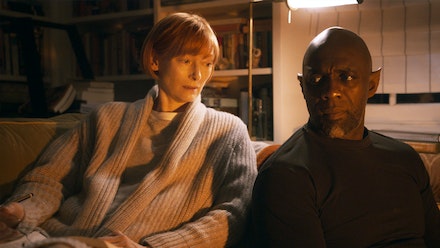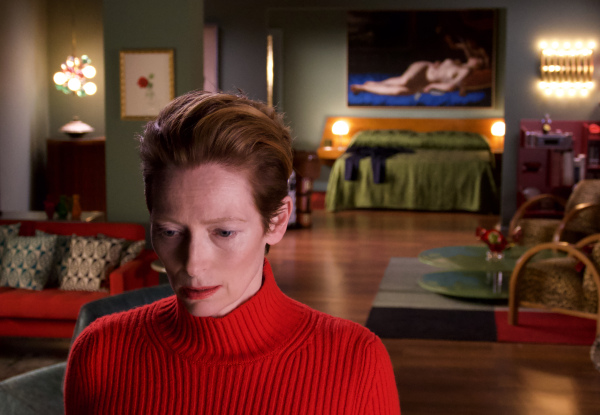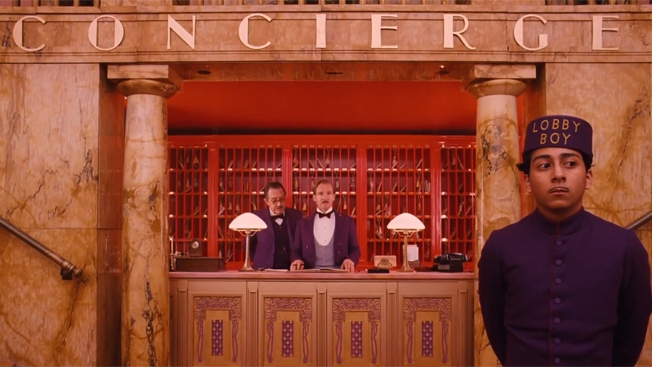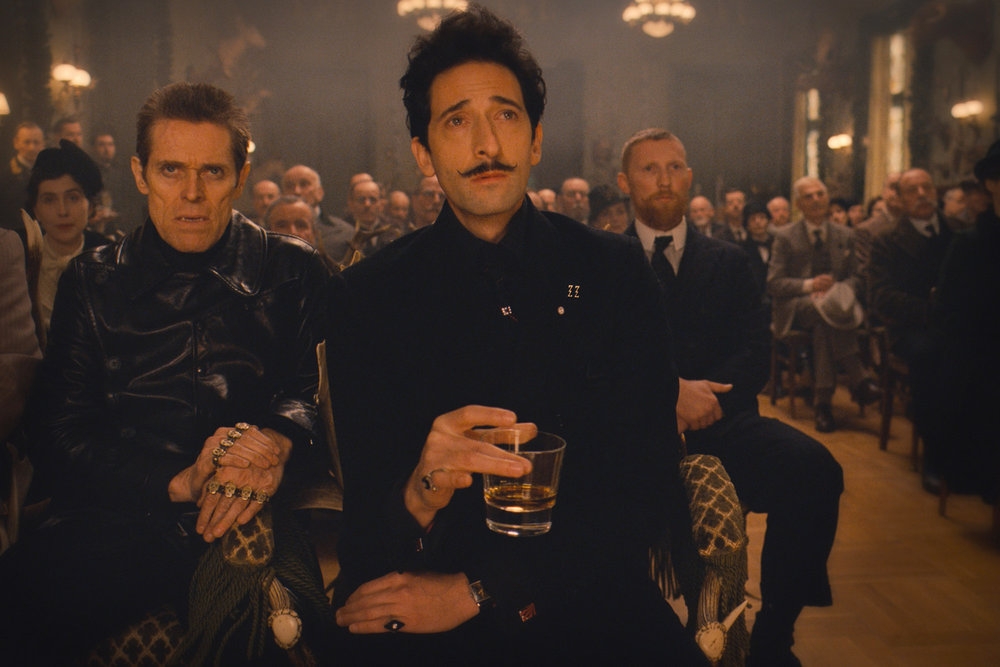WISHING AND HOPING // A FILM REVIEW OF "THREE THOUSAND YEARS OF LONGING"
 Wednesday, August 31, 2022 at 8:28PM | tagged
Wednesday, August 31, 2022 at 8:28PM | tagged  A.S. Byatt,
A.S. Byatt,  Aamito Lagum,
Aamito Lagum,  Augusta Gore,
Augusta Gore,  George Miller,
George Miller,  Idris elba,
Idris elba,  Nicholas Mouawad,
Nicholas Mouawad,  Tilda Swinton | in
Tilda Swinton | in  Film Reviews,
Film Reviews,  Reviews by Mateo Moreno,
Reviews by Mateo Moreno,  Theatrical Release
Theatrical Release  Alithea Binnie (Tilda Swinton) is a woman who doesn't let feelings get in the way of her intellect. She's not easily shaken. Even as we first meet her, strange men begin appearing in front of her. She does react to it, but shakes it off as her seeing something that isn't there. That is, until she purchases a tiny glass bottle in Istanbul and when she brings it back to her hotel room, an enormous Djinn (Idris Elba) comes out of it. He fills up the room around her, like a giant trying to fit cozily inside a home. He tells her that she now has three wishes, which she immediately does not like. Stories involving wishes never turn out well. But he tells her that he must, if not for her, than for him. If she doesn't wish, he'll be trapped yet again inside of his bottle, the only thing close to death for a being such as himself.
Alithea Binnie (Tilda Swinton) is a woman who doesn't let feelings get in the way of her intellect. She's not easily shaken. Even as we first meet her, strange men begin appearing in front of her. She does react to it, but shakes it off as her seeing something that isn't there. That is, until she purchases a tiny glass bottle in Istanbul and when she brings it back to her hotel room, an enormous Djinn (Idris Elba) comes out of it. He fills up the room around her, like a giant trying to fit cozily inside a home. He tells her that she now has three wishes, which she immediately does not like. Stories involving wishes never turn out well. But he tells her that he must, if not for her, than for him. If she doesn't wish, he'll be trapped yet again inside of his bottle, the only thing close to death for a being such as himself.
Eventually, the Djinn shrinks down to a normal size and speaks to her of his past, of what his powers have brought him and those who have found his bottle. We know of these kind of stories, but where George Miller's film veers, and the original A.S. Byatt story for that matter, is that this Djinn is more or less auditioning to her. He wants to convince her that he can help her make logical wishes that don't end horribly. He tells her three stories, stories from his past of wishes and what became of them. By telling her these stories, he can hopefully help her avoid them. The first tale tells a tale involving the Queen of Sheba, the second tale concerns Suleiman the Magnificent and his Turkish court, while the third tale tells of Djinn's own love story. Where Alithea is not interested at all when the tales begin, as the stories go on she begins to be drawn closer and closer to him. Swinton and Elba are so good together, warmly filling the space with storytelling magic. Almost all of their scenes together are inside a hotel room or inside of her home. But the visual marvel really comes to life when we see the stories of Djinn's past, and they are fantastical, full of beauty and wonder.
THREE THOUSAND YEARS OF LONGING is a strange film and I mean that as a compliment. Where his last effort, Mad Max Fury Road, was wild and non-stop, we now see Miller slow and restrained, telling a tale as old as time and bringing it to life in front of us like a quiet and slow moving fairy tale. And honestly, that's what it is. It's a wonderfully charming film, full of allure and desire and a strong ask of patience. If you give it your ear and your time, the film will wash over you, enchant you. Let it. Let it sink over you like an age old tale and then make our own wishes. Lord knows we could use one or two these days. Or three...
GRADE: A-
BASED ON THE SHORT STORY "THE DJINN IN THE NIGHTINGALE'S EYE" WRITTEN BY A.S. Byatt SCREENPLAY BY George Miller, Augusta Gore DIRECTED BY George Miller STARRING Tilda Swinton, Idris Elba, Aamito Lagum, Nicholas Mouawad NOW PLAYING IN THEATRES





